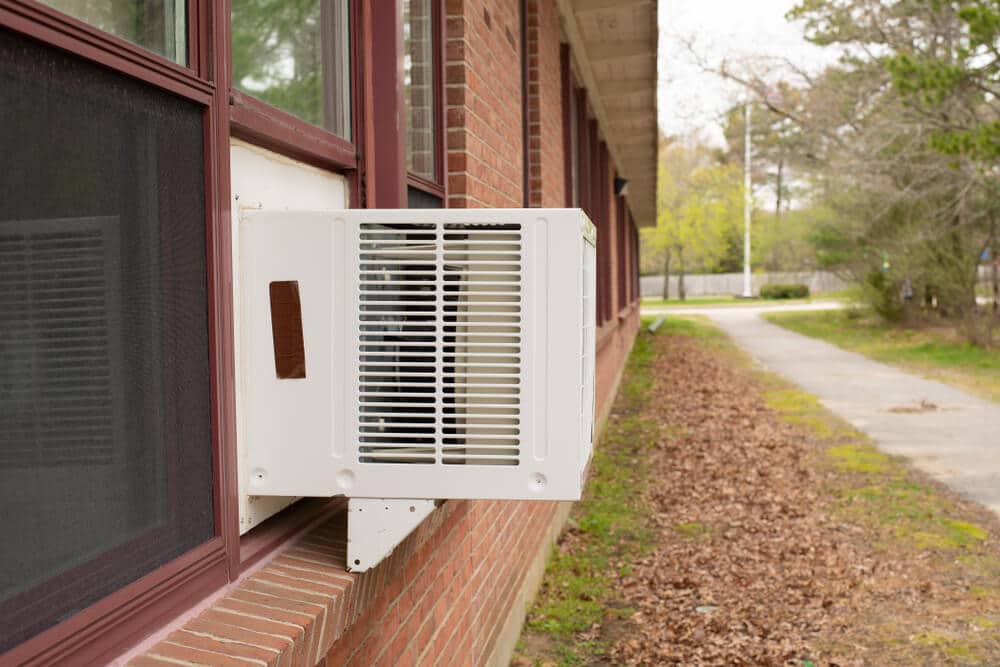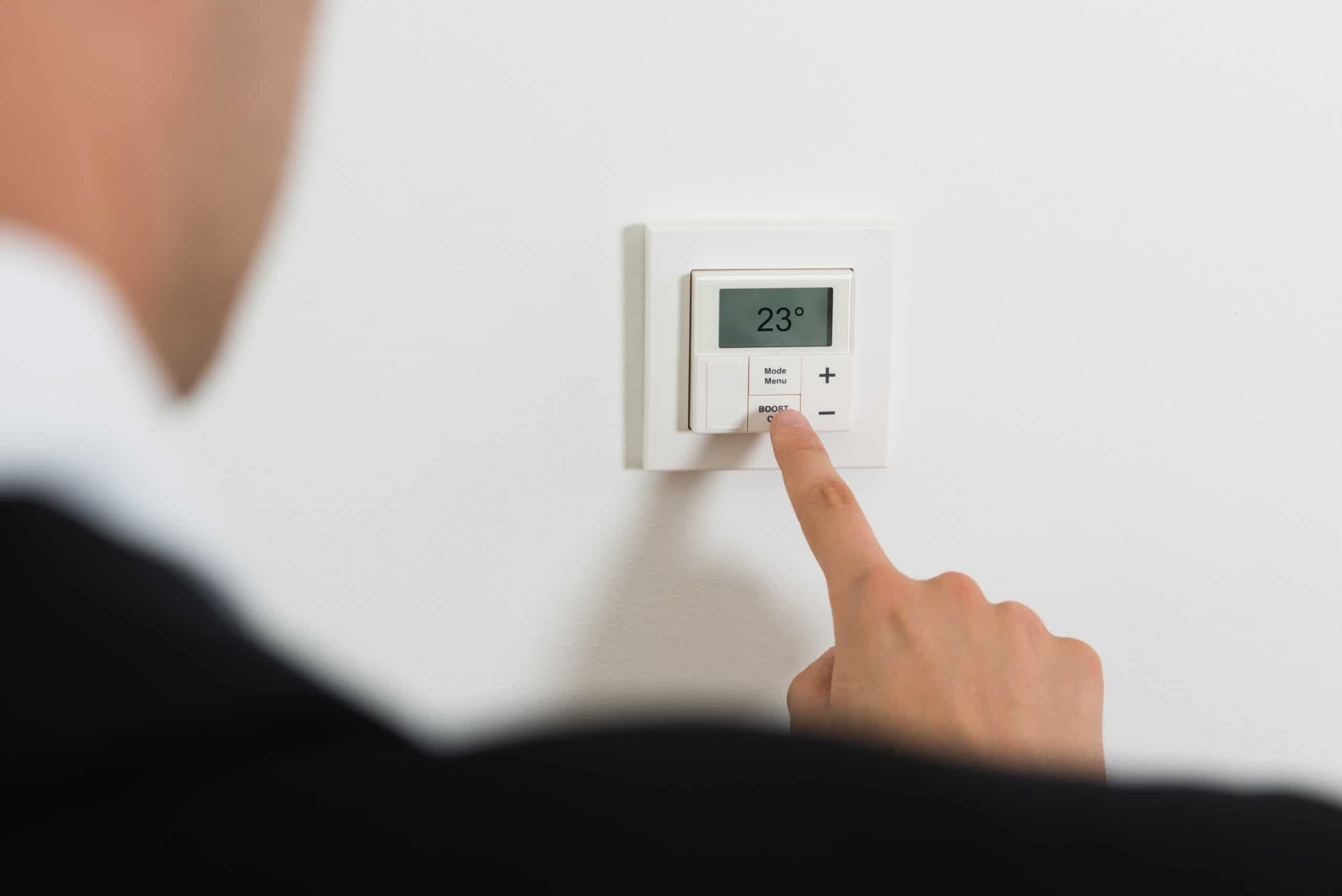You may have heard people discuss “central air” versus a “window air” unit, but what does it mean?
Central Air (Central A/C) is generally defined as a system of air-cooled at a central location and distributed to one or more rooms, typically via ductwork. Central Air is usually apparent when you see a vent recessed into the ceiling or floor of the apartment unit. This feature is available in most apartment buildings in the U.S. built after 1975.
Window Air Units (Window A/C), also known as room air conditioners, are exactly what they sound like and typically sit inside the window, designed to cool only the room they are in. These units are most common in relatively older apartment buildings (generally those built in 1970 and earlier in the U.S.).
You may be familiar with people asking for Central A/C but may not know why. Here are some of the benefits of Central Air versus Window Air Conditioners, in an apartment.
Better Circulation

All things being equal, central air conditioning provides better air circulation than window air conditioners. By definition, there might only be one Window Air Unit in the room but with Central Air, there could be multiple vents. Thus, with Window Air Conditioners there might be spots that are too cold and other spots that are a bit warmer. Central air conditioners provide better circulation throughout your entire apartment.
Consistent Temperature
Generally speaking, Window air conditioners will be cooler in areas near the unit and warmer in other areas. This can be uncomfortable especially if you have a bed positioned right next to a window AC. Central AC’s, on the other hand, are much more efficient at maintaining consistent temperatures.
Programmable Thermostat
Most central air conditioners come with programmable thermostats, which allow you to control the temperature throughout the apartment not just individual rooms. If you have a smart thermostat, they can even be controlled remotely so you don’t have to keep the house cooling when you are not at home. Just turn it on a little before you arrive so your apartment doesn’t feel too hot when you get home during hot summers.
Quieter When Running
Usually, the loudest parts of central units are located outside the apartment, which makes them quiet inside your apartment, compared to window ACs. They may also use newer technologies compared to window ACs that are older, which makes them relatively quiet and more suited to the needs of smaller apartments.
Dual Purpose
Most central air conditioners typically perform a dual function of distributing both cool and heat in the winters and summers, respectively. Window ACs can only cool down a room, which may not be as comfortable during cold winters, and need to rely on a separate system for heat.
Better Visual Appeal

Window air conditioners usually protrude out of a wall, while central air conditioners are smaller vents recessed into the ceilings. From a visual perspective, window air conditioners can be an eye sore both inside your apartment, including when you are driving up to the apartment complex.
Avoids Blocking Window and Natural Light
Generally speaking, window air conditioners are installed near window walls. This blocks and limits wall space where furniture can go, such as a dresser. Central Air takes up very limited floor or wall space.
Deciding between a central air conditioner or window air conditioner for your apartment is a matter of deciding what works best for you. But if you are looking for comfort and functionality, central air conditioners can offer many significant advantages over window A/C.
It’s also worth mentioning that HVAC (Heating and Air Conditioning) is a very complicated field and there are many different subtypes and system configurations available. This article is meant as a starter guide and focuses on the basic concepts most renters care about when comparing Central A/C and Window A/C.
Can You Install Central AC In An Apartment?
Generally, because of the complications (both financially and work-wise) involved, as a tenant, you are not able to install Central AC in an apartment. If you really want it, you are probably better off looking for a different apartment building that already has central air. You can always ask your landlord, but chances are it will be cost-prohibitive to add.





